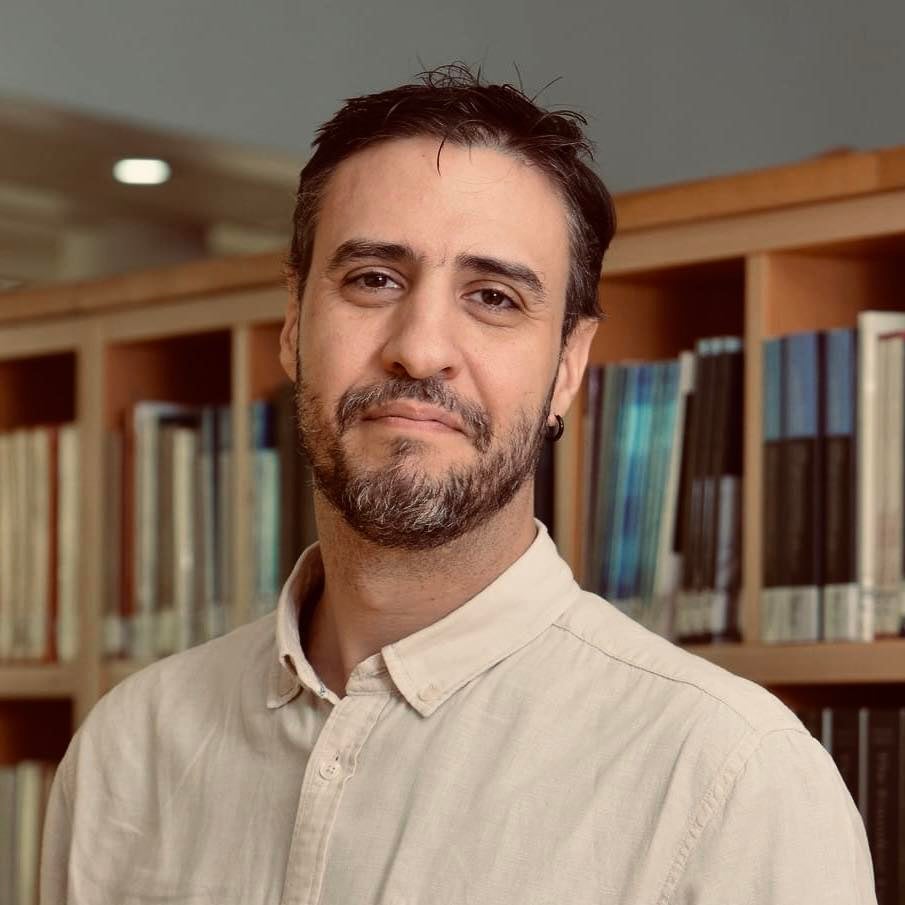Strategic Training Initiative for the Prevention of Eating Disorders (STRIPED)
Our initiative is a public health incubator, designed to cultivate novel insights and strategies for prevention. We introduce trainees to a rich array of disciplinary perspectives, methodologies, and theories and provide them with opportunities to join crosscutting collaborative teams.
Team
STRIPED is made up of a transdisciplinary team of dedicated scholars and trainees committed to the prevention of eating disorders and dangerous weight- and shape-control behaviors.
Faculty

Dr. Austin is an award-winning researcher, teacher, and mentor. She is the Founding Director of the Strategic Training Initiative for the Prevention of Eating Disorders: A Public Health Incubator (STRIPED), based at the Harvard Chan School and Boston Children’s Hospital. Her program STRIPED is the first research and training program dedicated to eating disorders prevention based at a school of public health and with a specialization in research-to-policy translation.

Dr. Ariel Beccia is a Research Scientist in the Division of Adolescent and Young Adult Medicine at Boston Children’s Hospital and faculty with the Strategic Training Initiative for the Prevention of Eating Disorders (STRIPED) at the Harvard T.H. Chan School of Public Health and Boston Children’s Hospital. She is an Instructor in Pediatrics at Harvard Medical School, and an Instructor in the Department of Epidemiology at Harvard T.H. Chan School of Public Health. She received her PhD in epidemiology from the Clinical and Population Health Research program at the University of Massachusetts Chan Medical School and completed a postdoctoral research fellowship with STRIPED that was funded by the National Institute on Minority Health and Health Disparities (NIMHD). As a social epidemiologist, Dr. Beccia’s research focuses on understanding the social and structural determinants of population-level eating disorder inequities, with a particular focus on inequities affecting LGBTQ+ youth. She regularly collaborates on projects examining the drivers of mental health inequities more broadly and has a strong interest in integrating causal inference, econometric, and other advanced quantitative methods into this line of work. Alongside her research, Dr. Beccia leads STRIPED’s Eating Disorder Public Health Surveillance Working Group to help improve the monitoring of eating disorders and disordered eating among U.S. youth, especially via the CDC’s Youth Risk Behavior Survey (YRBS)…

Dr. Kenney is an Associate Professor at the Harvard Chan School in its Department of Nutrition. Her work focuses on identifying successful, efficient, and cost-effective strategies to help improve children’s healthy eating and physical activity behaviors, and help young children form healthy habits for life. Taking a holistic approach to child health, Dr. Kenney focuses not only on how schools and communities can support healthy eating and physical activity behaviors, but also on how experiencing weight stigmatization as a child in these settings can harm health, such as by increasing risk of disordered weight control behaviors and impairing academic achievement. Dr. Kenney mentored a Harvard Chan Master’s of Science student, Morgan Redman, to conduct a qualitative study of U.S. school teachers and their perspectives on how students with obesity are impacted by weight stigma in the school environment. She also mentored Suzanne Wintner, a Master’s of Public Health graduate from Harvard Chan who also recently completed a doctorate in social work at Simmons College, to complete a national survey of school administrators to document the types of obesity prevention programming that schools utilize and how this may impact weight-based teasing and bullying. Currently, she and her research team are working on a qualitative study of how students experience weight stigma in school settings and how obesity-related school programs can help or hurt.

Dr. Mattei is the Donald and Sue Pritzker Associate Professor of Nutrition at the Harvard T.H. Chan School of Public Health. She holds a BS in Microbiology from the University of Puerto Rico and an MPH in Epidemiology and Biostatistics and PhD in Nutritional Biochemistry from Tufts University. Her research focuses on genetic, dietary, and psychosocial factors in cardiometabolic diseases and allostatic load, emphasizing health disparities in U.S. and Latin American Hispanics/Latinos. Dr. Mattei leads culturally tailored community interventions and collaborates with large Hispanic/Latino cohorts and studies in Puerto Rico and Boston, funded by NIH and private foundations. Her global work includes partnerships across Latin America. Her goal is to promote healthier eating and health equity in underserved populations. A Fellow of the American Heart Association, she received its Mark Bieber Award for Outstanding Nutrition Research and is a Robert Wood Johnson Foundation Culture of Health Leader. Dr. Mattei advocates for the inclusion of underrepresented groups in research, minority students in education, and women and minorities in science.

Dr. Sarah Pitts is an Associate Professor of Pediatrics at Harvard Medical School, the Adolescent Medicine Fellowship Program Director at Boston Children’s Hospital, and the Program Director of MCHB (Maternal and Child Health Bureau) Leadership Education in Adolescent Health (LEAH) training program at Boston Children’s Hospital. Boston LEAH is one of seven MCHB funded interdisciplinary training programs in adolescent health. Dr. Pitts is a clinician educator and researcher, with expertise in eating disorder care, reproductive endocrinology, bone health, and complex contraceptive care. She established a national collaborative assessing adolescent use of long-acting reversible contraceptives.

Dr. Richmond, MD, MPH is a clinician researcher trained in Pediatrics and Adolescent Medicine and social epidemiology with more than 10 years’ experience in conducting weight-related research while also providing care to a diverse population of adolescents. Her interest in social determinants of health and weight-related outcomes began as a Robert Wood Johnson Clinical Scholar at the University of Michigan. She is currently the Director of the Boston Children’s Hospital Eating Disorder Program, the Director of the STEP program, a program housed within the Adolescent and Young Adult Medicine program focused on the health and wellness of youth with elevated BMIs and with a particular expertise in treating youth with binge eating disorder (BED), and the Co-Director of the Boston Children’s Program for Avoidant Restrictive Food Intake Disorders (ARFID). In her own practice, she treats patients with the full spectrum of eating disorder diagnoses in collaboration with nutrition and mental health colleagues. Dr. Richmond’s research and clinical interests span the eating and weight spectrum. She has a number of projects focused on the negative effects of weight stigma and the positive effects of body satisfaction. She is leading the RECOVERY project, a registry of patients with eating disorders that aims to uncover the treatment and intervention approaches that are most effective in treating different types of eating disorders.
Trainees

Ryan Ahmed
College Student, New York Institute of Technology

Caroline Berish, BS
J.D. Candidate, Michigan State University College of Law

Sarah Cheng
College Student, Brown University

Stephanie Diamond BA
J.D. Candidate, Michigan State University College of Law

Boi (Bella) Hoang
Master of Public Health-Health Policy Student, Harvard TH Chan School of Public Health

Stanley Huang
Bachelor of Arts student, Economics, Boston University

Chuying Huo
Bachelor of Science student, Computer Science and Math, Duke University

Destiny Jackson
Doctoral student, Population Health Sciences, Harvard T.H. Chan School of Public Health

Mallory Kean, BA
J.D. Candidate, Michigan State University College of Law

Yuning Liu, MBBS, MS
Doctoral student, Population Health Sciences, Harvard T.H. Chan School of Public Health

Junjie Anderson Lu, MD, MS, MPH
Doctoral student, Epidemiology and Clinical Research, Stanford University School of Medicine

Pari Patel
College Student, New York Institute of Technology

Laura Torrent
Master of Public Health student, Harvard TH Chan School of Public Health

Arshia Verma
College Student, Texas
Fellows and Visiting Scholars

Maya Azar Atallah received her MSc in Nutrition and Behaviour in 2019, from Bournemouth University in England, with a focus on the impact of food policies on eating behaviors. As part of her master’s thesis, she conducted a study on the relationship between frequent nutrition fact label use and weight control measures among Lebanese young adults. Her primary goal was to determine if frequent use of nutrition fact labels is associated with higher engagement in healthy/unhealthy/extreme weight control measures and binge eating disorder, as a way to identify if high reliance on nutrition fact labels could be predictive of disordered eating and eating disorders. She became passionate about primary prevention of eating disorders through policy action while completing her MSc and studying the mental and social distress of experiencing an eating disorder as well the economic burden of eating disorder treatment on the healthcare system as well as the individuals. Maya collaborates with STRIPED as a research fellow on a global policy scan survey aimed to assess the different regulations of weight loss supplements in different countries. Maya plans to complete a PhD in public health to improve policies and fill in the gaps needed to build better primary prevention of eating disorders.

Katrine Bønneland Tølbøll is a PhD candidate in Political Science at Aarhus University in Denmark, and she joined STRIPED as a Visiting Fellow for the fall semester of 2025. Katrine is the recipient of the Crown Prince Frederik Fund scholarship. Her research lies at the intersection of adolescent mental health, digital behavior, and computational social science. Currently, she investigates how problematic use of social media can be detected and addressed using a combination of empirical data, behavioral theory, and predictive modeling. Her work aims to inform data-driven prevention strategies and youth-oriented public policy.
Katrine holds a BA in Cognitive Science from Aarhus University, an MSc in Behavioural Economics from City, University of London, and an MA in Cognitive Semiotics from Aarhus University. Her work incorporates tools from clinical psychology, psychiatry, data science, and public health to explore questions around digital media and youth.
Katrine has taught at the undergraduate and graduate levels in both Denmark and the UK, developed workshops on advanced statistical analyses, and presented findings to both scholarly and governmental audiences. She has served as Chair of the PhD Association and Vice Chair of the PhD Committee at Aarhus University, School of Business and Social Sciences, where she advocated for equality, mental health, and training across research disciplines.

Nadia Craddock is a Research Fellow at the Center for Appearance Research at the University of the West of England, where she is exploring whether and under what conditions the fashion, beauty, and advertising industries can foster positive body image. She seeks to understand how body image impacts those who work in these industries, as well as the opportunities for and challenges to fostering positive body image in their work. During her time with STRIPED, Nadia delved into STRIPED’s research studies related to the fashion industry and its educational and legislative initiatives on dietary supplements, UV tanning, and skin bleaching to help inform her future investigative partnerships. Nadia collaborated with STRIPED on various projects during the fall of 2018 and spring of 2019.

Chloe Gao is an MD/PhD student at the University of British Columbia. Building on her work experience in mental health and substance use services in Canada and Australia, she is embarking on her doctoral research to integrate the perspectives of diverse communities of young people into mental health service redesign. As a visiting scholar with STRIPED for the 2023-25 academic years, Chloe will be focusing on co-designing culturally safe strategies for engaging Asian American and Canadian youth aged 16-25 years old in eating disorders prevention research, clinical care, and policymaking.

Monica Henderson (she/her) received her Master in Public Health (MPH) in Community and Behavioral Health Sciences and Certificate in Health Equity from the University of Pittsburgh School of Public Health. As a health justice scholar, her interests center on child health and racial equity. The aim of any of her work is to examine the relationship between systemic oppression, liberation, and life outcomes. She currently works as a program and outreach coordinator at Pitt’s Center for Race and Social Problems – Race and Youth Development Research group. Henderson’s master’s thesis examined Black hair politics as a public health concern for Black women and girls. She also provided written testimony to the Massachusetts legislature to support their CROWN (Creating a Respectful and Open World for Natural Hair) Act and is continuing to do work around afro-textured hair empowerment with individuals in Pittsburgh. Monica collaborates with STRIPED as a consultant on their new CROWN Act Advocacy Impact Study.
Staff

STRIPED Program Manager
Division of Adolescent and Young Adult Medicine, Boston Children’s Hospital
jill.kavanaugh@childrens.harvard.edu
Jill is a published scholar with a BA in Media, Information, and Technoculture from Western University in Ontario, Canada, and a Master of Library and Information Science, specializing in health sciences librarianship, alongside a certificate in writing, all from Western. She has also studied health literacy at Harvard T.H. Chan School of Public Health, and is a member of the Academy of Health Information Professionals (AHIP). Jill’s primary research interests revolve around social media’s impact on the health and well-being of adolescents, especially in the realm of body image, coupled with a focus on media literacy. Additionally, Jill is passionate about legislation advocacy concerning big tech’s influence on social media and its potential impact on public health. Her dedication extends to researching health-related topics, such as knowledge translation, health literacy, and embedded librarianship.

STRIPED Program Coordinator
Division of Adolescent and Young Adult Medicine, Boston Children’s Hospital
abigail.bulens@childrens.harvard.edu
Abbie is a recent graduate with a BA in Psychology from the University of Massachusetts Amherst. Her research interests include the impact and influence of social media on the facilitation and development of eating disorders, and eating disorder treatment outcomes for different diagnoses. Additionally, she is interested in investigating the co-morbidity of various psychological disorders and eating disorders.
Collaborating Mentors

Dr. Jerel Calzo is a developmental psychologist, Professor in Health Promotion and Behavioral Science at San Diego State University School of Public Health, and a Core Investigator at the Institute for Behavioral and Community Health, where he directs the Action Research on Community Health Equity and Stigma (ARCHES) Lab (arches.sdsu.edu). Dr. Calzo’s research delineates the developmental course of health disparities connected to gender, sexual orientation, and other social determinants of health (e.g., housing), and identifies mechanisms that interventionists can leverage in strategic contexts to promote health and positive social development among adolescents and young adults. His work on body image and eating disorders focuses on advancing health equity among understudied and underserved populations, including boys and men and LGBTQ+ populations. He received his PhD from the University of Michigan and MPH from Harvard T.H. Chan School of Public Health.

Professor Costello teaches Research, Writing and Advocacy from an Intellectual Property Law Perspective and teaches student clinicians in the MSU First Amendment Law Clinic. She has also taught Media Law, Copyright Law, and Intellectual Property in the Internet Age. Before joining the law college she practiced in the area of commercial litigation, defamation law, ebusiness law and collections litigation for the law firm of Dickinson Wright PLLC in Detroit. She received her bachelor’s degree in journalism from Michigan State University, and earned her Juris Doctor, cum laude, from the University of Detroit Mercy School of Law where she served as an editor of the Law Review and president of the Women’s Law Caucus. Professor Costello is a crucial component of STRIPED’s work on the development of legislation to protect youth from the dangers of social media.

Dr. Allegra Gordon is an Assistant Professor in the Department of Community Health Sciences at Boston University School of Public Health. She received her MPH in Sociomedical Sciences from Columbia University and her doctorate in Social & Behavioral Sciences with a concentration in Women, Gender, and Health from the Harvard T.H. Chan School of Public Health. In her research Dr. Gordon uses quantitative and qualitative methods to understand the mental and physical health impacts of discrimination and the effects of gender socialization and gender norms on the health of young people across sexual orientations and gender identities. She is funded by the National Institute of Drug Abuse to study how changes in the social and policy environment relate to substance use and health-related quality of life among sexual minorities. Recent projects have included research on weight stigma among sexual minority young adults and a study of gender expression, peer victimization, and eating disorders symptoms among U.S. high school students. In collaboration with The Fenway Institute, she has conducted qualitative research on body image and weight control behaviors among low-income transgender women. She is currently working on an exploratory study on appearance ideals and body image concerns among LGBTQ college students and on a pilot study examining the role of intimate partnerships in relation to body image and sexual health among transgender and non-binary young adults.

Lingbo Liu is a Research Associate at the Center for Geographic Analysis (CGA), leading the Spatial Data Lab project. His work focuses on developing advanced Geospatial AI (GeoAI) models and an open-source visual programming platform to drive geospatial research and democratize geospatial data science. Previously, he was a CGA postdoctoral research fellow, a tenured lecturer in the Department of Urban Planning at Wuhan University. His research centers on healthy cities, with a particular focus on the unequal health impacts of environmental exposure. By leveraging GeoAI, big data analytics, and network analysis, he examines how spatial inequalities emerge and persist in urban systems, shaping public health outcomes. His work aims to uncover the mechanisms of spatial justice, providing insights that support more equitable spatial policies and actions to address contested spaces, mitigate health disparities, and promote healthier, more sustainable urban environments.

Dr. Raffoul is an Assistant Professor in the Department of Nutritional Sciences at the University of Toronto. She received her MSc and PhD from the School of Public Health and Health Systems at the University of Waterloo. Dr. Raffoul joined STRIPED as a postdoctoral fellow in 2020, funded by a three-year Canadian Institutes of Health Research Fellowship, where she worked on several projects that examined policy approaches to prevent eating disorders, ranging from government policy to social media regulation. Her multi- and mixed-methods research aims to investigate and promote the uptake of evidence-based policies to prevent eating disorders and promote healthy dietary patterns among populations. In collaboration with national and international organizations, she collaborates on knowledge dissemination and legislative advocacy efforts to regulate social media misinformation related to weight and nutrition, ban the sale of harmful weight-loss and muscle-building pills to minors, and prohibit weight discrimination. In collaboration with affected communities, her current research aims to explore the differential impacts of nutrition policy on disordered eating risk and examine avenues through which youth engagement in knowledge translation may impact decision-makers’ use of research evidence in nutrition policy.

Dr. Rachel Rodgers is an associate professor of Applied Psychology at Northeastern University, and Director of the Applied Psychology Program for Appearance and Eating Research (APPEAR). Dr. Rodgers received her PhD from the University of Toulouse in France. Her research with APPEAR focuses on body image, disordered eating and other appearance-changing behaviors. Grounded in sociocultural models, this work aims to develop models of the effects of socio-cultural determinants on these behaviors, with a view to prevention of eating disorders and associated concerns at the individual level and also through public policy. She is a collaborating mentor with the STRIPED program, and a member of the Advisory Board of Model Alliance. In addition, she is a Fellow of the Academy of Eating Disorders.

Dr. Kendrin Sonneville is an Assistant Professor in the Department of Nutritional Sciences at the University of Michigan School of Public Health and is a Collaborating Mentor for the Strategic Training Initiative for the Prevention of Eating Disorders (STRIPED). Dr. Sonneville is a registered dietitian, behavioral scientist, and public health researcher whose research is focused on the prevention of eating disorders. The goal of her research program is to understand how to “help without harming,” specifically, how to best promote health and nutrition among youth without inadvertently increasing body dissatisfaction, weight stigma, preoccupation with food and weight, and disordered eating. Dr. Sonneville received a Bachelor of Science in Nutritional Sciences and a Bachelor of Science in Dietetics from Michigan State University, a Master of Science in Human Nutrition from the Friedman School of Nutrition Science and Policy at Tufts University, and Doctor of Science in Public Health Nutrition from the Harvard T.H. Chan School of Public Health. Dr. Sonneville is the former Director of Nutrition Training in the Division of Adolescent and Young Adult Health at Boston Children’s Hospital and was the co-director of STRIPED for several years, providing mentorship to numerous trainees and spearheading STRIPED’s new line of research and training in cost-effectiveness analysis of eating disorders preventive interventions.

Cynthia A. Tschampl, PhD, is a Scientist at the Heller School for Social Policy and Management, Brandeis University. With nearly 25 years’ experience in U.S. and global health, her career began with a focus on policy and advocacy, including work in South Africa, Colombia, and Haiti. Dr. Tschampl enjoys quantitative and qualitative research and specializes in economic evaluations such as cost-effectiveness and cost-benefit analyses.
Dr. Tschampl has collaborated with the STRIPED team on several economic evaluations of public policy interventions aimed at restricting the sale of diet pills and muscle-building supplements to minors. As part of this collaboration, she has mentored multiple STRIPED fellows, guiding them in research methodologies related to cost-effectiveness and, more recently, distributional cost-effectiveness analyses. The latter provides insights into equity concerns as well as economics.
Her research interests include prevention and control of infectious diseases (including healthcare financing), substance use disorder responses, services for people experiencing homelessness, health inequities, eating disorders, and quality measurement. A member of the Massachusetts Medical Advisory Committee for the Elimination of Tuberculosis since 2004, she received the National TB Controller Association’s Charles DeGraw TB Award for outstanding service in 2011 and was elected Chair-Elect of Stop TB USA in 2021, becoming Chair in 2023.
International Expert Advisory Panel

Marilyn Bromberg (“M”) is an Associate Professor at the University of Western Australia Law School in Perth, Australia, and one of the nation’s leading legal scholars on the myriad ways that law and policy related to advertising and social media can affect body image and mental health. She is an expert advisor for the Butterfly Foundation, the leading national Australian nonprofit organization supporting people with eating disorders and their families and advancing policy for treatment access and prevention. M is a former STRIPED Visiting Scholar, and continues her involvement on our panel, exchanging knowledge and strategies for advancing our shared interests in research-to-policy translation, innovative legal solutions to harmful body image pressures on social media, and so much more.

Dr. Sook Ning Chua is the founder of Relate Malaysia, a not-for-profit organization established in 2015 to advance mental health services, education, training, and advocacy. Dr. Chua has been an active advocate for mental health across Southeast Asia for more than a decade and has spoken widely in public forums, media outlets, and through three TEDx Talks. She currently serves on the Board of Directors of the National Institute of Youth Research in Malaysia.
Dr. Chua collaborates with STRIPED on a range of research projects, including estimating the prevalence of eating disorders in Singapore and Malaysia, and examining disordered weight control behaviors, cosmetic surgery, and the use of skin-lightening products in Asia.
Practicing in both Singapore and Malaysia, she is recognized for her commitment to raising the standard of mental health at individual, organizational, and societal levels. In 2022, she was awarded the New World Social Innovation Fellowship, given by the Social Innovation Change Initiative at the Harvard Kennedy School’s Center for Public Leadership.

Emilio J. Compte, PhD, is Associate Professor at the Eating Behavior Research Center (Centro de Estudios de la Conducta Alimentaria, CECA) of the School of Psychology, Universidad Adolfo Ibáñez (Chile), where he directs the Master’s Program in Eating and Feeding Disorders. He also serves as Director of Research at Comenzar de Nuevo, a specialized treatment center in Monterrey, Mexico. His research focuses on eating disorders, muscle dysmorphia, body image, LGBTQI+ health, and psychometrics, and he is currently Principal Investigator of a FONDECYT-funded project on appearance- and performance-enhancing drugs and supplements among gym users. He serves on the editorial boards of leading journals in the field and has received awards for research and peer reviewing.
Research Profiles

Dr. Debra Franko is the Senior Vice Provost for Academic Affairs at Northeastern University; Associate Research Director at the Eating Disorders Clinical and Research Program and a Consultant in Psychiatry at Massachusetts General Hospital. She has been on staff since 1998 and completed her postdoctoral training at the Eating Disorders Unit at MGH in 1988 after her internship at Beth Israel Hospital. She is currently the Senior Vice Provost for Academic Affairs and Professor in the Department of Applied Psychology at Northeastern University. She was a Visiting Scholar in Psychology at Wesleyan University for ten years and received a Distinguished Fellow Award from the Institute for Advanced Study at La Trobe University in Melbourne, Australia. In 2015 she received the Lori Irving Award for Excellence in Eating Disorder Prevention and Awareness from the National Eating Disorder Association. Dr. Franko has been the principal investigator or co-investigator on multiple NIH grants focused on eating disorder and obesity prevention, the use of technology in addressing eating disorder risk, and the longitudinal study of eating disorders. Her most recent work has been to develop online programs for adolescents to prevent eating disorders and improve body image. She also recently completed a large-scale NIH-funded study examining binge eating disorder in ethnically diverse populations, and continues to focus on developing culturally-appropriate treatments for eating disorders. Dr. Franko has authored over 150 peer-reviewed publications in the area of eating disorders, body image, and obesity, and co-authored Unlocking the Mysteries of Eating Disorders: A Practical, Life-Saving Guide to Your Child’s Treatment and Recovery (McGraw-Hill).

Associate Professor Laura Hart is a Principal Research Fellow in the Melbourne School of Population and Global Health, and the lead researcher of the Equity and Mental Health Research Group within the Centre for Health Equity.
Research Profile

Trine Tetlie Eik-Nes is an Associate Professor in the Department of Neuroscience and Behavioral Medicine at the Norwegian University of Science and Technology (NTNU). She holds an MSc from the Regional Centre for Child and Youth Mental Health and Child Welfare and earned her PhD in Public Health from NTNU in 2018. With over 20 years of experience in the mental health sector as both a clinician and researcher, her work centers on binge eating disorder and the complex interplay between obesity, eating disorders, body image, and weight-related stigma. Her research integrates clinical and registry data to explore these issues from both individual and population-level perspectives.
Teaching Case Team

Eric Weinberger is a Cambridge, Massachusetts, writer working with STRIPED on our teaching case series set in the fictional U.S. state of Columbia. In addition to working with STRIPED, he has written teaching cases for the Dartmouth Center for Health Care Delivery Science on the pioneering work of health care organizations nationwide on matters of clinical practice and delivery, including shared decision making and the reorganization of primary care. Having graduated magna cum laude from Yale University with a degree in history, he spent eight years teaching expository writing at Harvard College and has published nearly 100 essays, op-eds, book reviews, travel articles, vignettes, and fiction pieces for leading U.S. and British newspapers and literary journals.
Former Team Members


























See here for a list of former trainees.
- Jess Haines, PhD, MHSc, RD
- Dianne Neumark-Sztainer, PhD, MPH, RD
- Susan Paxton, PhD